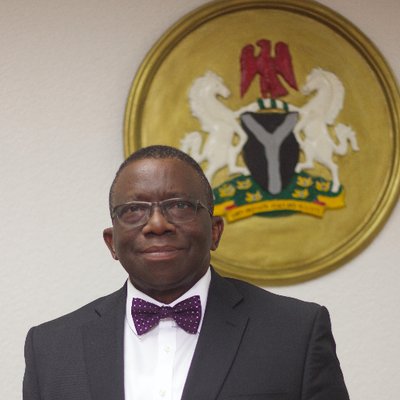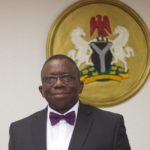By Asma’u Ahmad
The Nigeria’s Federal Government in collaboration with international technical partners have commenced the 2018 Nigeria Demographic and Health Survey (NDHS).
Health Reporters gathered that the survey is designed to collect high-quality data on health and wellbeing of Nigerians for better policy formulation.
The Minister of Health, Prof. Isaac Adewole, represented by the Permanent Secretary of the ministry, Alhaji Abdulaziz Abdullahi, kick-started the programme during a joint news conference on Thursday in Abuja.
The briefing was organised by the ministry and National Population Commission (NPopC).
The minister said the survey commenced on Aug. 15 and it would end by Dec. 15, across the 36 states of the federation and the Federal Capital Territory (FCT).
“The zonal fieldwork is scheduled to commence from Aug. 15 to 22 in the six geo-political zones of the country.
“The fieldwork at the state level will commence from Aug. 26 to Dec. 15 in the 36 states and the FCT,’’ the minister said.
Adewole said the survey was being conducted by NPopC, the agency statutorily mandated to generate demographic data for national planning, in collaboration with the ministry.
He added that as the implementing agency (NPopC) would be primarily responsible for the planning, analysis and dissemination of the survey results.
According to him, the sample size for the survey consists of a total of 1,400 clusters. He added that each state and FCT had 37 clusters, except Lagos and Kano States which had 53 clusters, respectively.
“The clusters are made up of 580 urban clusters with 17,310 households and 820 rural clusters with 24,690 households.
“Each cluster is having 30 households each; expectedly, a total of 40,567 women and 12,056 men will be interviewed in this survey,’’ Adewole said.
He said the survey, unlike the previous exercises, had been designed with additional components on malaria and genotype testing to assess prevalence of malaria, sickle cell disease and traits among children from six to 59 months.
The minister noted that specific objective of the survey was to collect high-quality data for policy formulation, programme planning, monitoring and evaluation.
He added that it was also aimed at fostering and reinforcing host-country ownership of data collection, analysis, presentation and use, among others.
Dr Ismail Gaji, the Director-General, NPopC, said the cost of the survey was about $11 million with seven million dollars contributed and remaining balance to be sourced internally by the government.
Similarly, Ms Erin Holleran, Acting Director, USAID Nigeria, renewed the commitment of the USAID to support government in implementing key activities that would improve the health and welfare of its citizens.
She urged government and key stakeholders to take time to digest and understand the data when the result of the survey was released.





